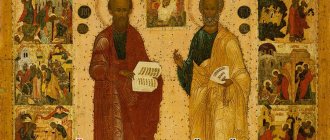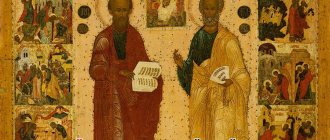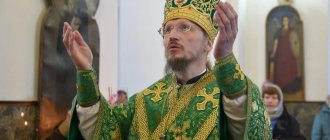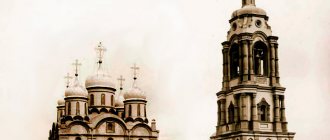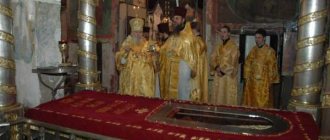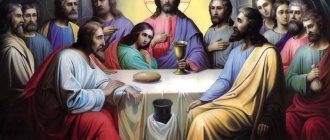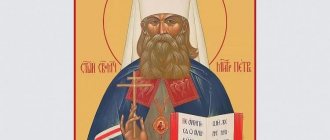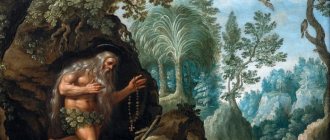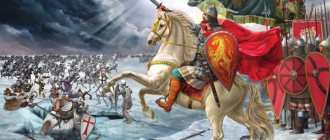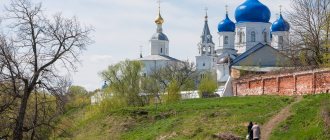St. Peter
It was a late December night. The rare passers-by walking on the streets evoked nothing but the gray feeling that had long filled this boring city. They walked without noticing anyone around them; the darkness scared them, but did not cause panic. They were boring, like the snow that had melted that day, like the buildings that killed just by looking at them. The people of this night are mediocre, they no longer believe in beauty and death, which gave birth to love. They want to believe only in themselves, but they are not the masters of their life and even death, they are simply deceived by time and generations.
Only one person who finds himself on this night is worthy of attention. Heading along the terrible street towards the embankment, he thought about everything that interested him, this was his last breath of air, his last heartbeat, his last love.
He was so simple, his simple dark jeans and gray hat, black thin jacket, it seemed that he was not dressed for the weather. But it was not his clothes that did not fit him into the boring picture of the city; his thoughts were so tangible that they could simply be read.
He talked about death, or more precisely about life, and thought about what awaited him after this walk; he did not think about his past, for the first time in many years. His thoughts were so beautiful and so simple and perfect that it seemed like he was smart, but his voice didn't show it because he was dead now, but life was on the way. The young man’s feet led him to the beginning of the bridge, connecting two parts of the city, connecting life and death.
The pupils, dilated, looked up from the lanterns on the bridge, and once again they saw the sky - the most important miracle in this world. “If only this bridge were even higher, then I would have fallen not into the water, but into the clouds. No! I’m not afraid of pain, it’ll just be beautiful,” thought the man in a formal jacket.
Having taken his first steps on the bridge, the young man saw a raven in the sky, black as severity, he was flying low, oh no, he lands on the bridge, right in front of the lonely young man. He throws off his pen. Letting out a groan, the raven disappeared, just as pure sound disappears in a stream of ignorance. “Maybe I can handle it like everyone else and stay? ” - the thought of how a thunderstorm on a hot day injured the unfortunate man on the bridge. “No, I don’t believe in myself, I believe in death, I’m going, there’s not much left! "
More steps to the other side, more thoughts of death, more strength. But what is this lying on the road? It’s white, but it’s definitely not snow, it shouldn’t be here. My heart began to beat faster, like when you tear the wrapping paper off a gift. You need to come closer to see what's there. These are daffodils, four flowers, tied with a yellow thread. “Cursed be the one who left them here, they are beautiful, like me - thrown on the bridge to be admired or feared for their ideal,” the loner said to himself.
Despite the late hour, cars were still passing on the bridge, and I could swear they slowed down when their headlights illuminated Peter. Peter? He didn’t tell me his name, probably there’s no other way to call him. Now it will become easier, a name always makes everything easier to tell, although he didn’t like it, otherwise he would have introduced himself to me with it.
Several minutes have already passed since the start of the journey on the bridge, we need to hurry.
But Peter is already in place - the middle of the bridge, the sixth lantern standing behind him. Soon it will strike midnight and it will be late, a date will come that should never come in Peter’s life, we need to end this.
Silence enveloped the world, there was only one person left capable of feeling and thinking, but he too would leave this light, exactly at midnight, exactly in the center of the bridge.
Peter threw his legs over the handrails of the bridge, holding them with his hands, and found himself on the edge. There is little left and life will return. He resembled an angel who descended into this world in order to see ignorance and show the beauty of the soul leaving the body. It seemed that Peter stood like that for an eternity, but a terrible battle was already going on inside him, for the first time all evening he began to remember himself and wanted to let go of his hands even more.
“I love you,” Peter heard himself say a few hours ago.
“You are a nonentity, you will never achieve anything,” these were the words of the terrible woman that Peter always heard.
Only Peter himself knows how he could endure it, but he had to wait a little longer.
“You are my friend,” he never believed in this phrase, Petya had no friends, he had himself.
“I won’t be happy,” again the young man heard his own voice, it didn’t hurt him, he loved the feeling of pity and was glad that it didn’t leave him even before the jump.
“Life has no meaning, it’s just a big mistake that is corrected by death,” one tear rolled down from Peter’s eye, like a large diamond, and fell into the river.
Standing on the bridge, he no longer felt his limbs, but visions continued to come to him, he was afraid of them and hated them. His whole life has passed through a bridge from which he is destined to fall and kill her.
Another minute passed and some movement appeared on the bridge. Someone was approaching Peter. It turned out to be a man in a strange yellow tailcoat; he stopped already in the middle of the bridge, right where Peter was standing. – This is just the beginning! “Don’t be afraid,” said the strange man in a tailcoat.
“I’m not afraid, dad,” these were the young man’s last thoughts before his hands unclenched the handrails of the bridge.
A moment later, when the body hit the thickness of the water and ice, what Peter wanted happened, he did not jump into the water, he jumped into the sky, his soul was already soaring high above this terrible city, above the world that could not understand him and over the beauty that gave birth to this chaos. For the first time in his life, Peter found happiness, this happiness was not in peace, but in the fact that now he had truly come to life, great things awaited him very soon, but for now the rest of his life hung in the air, like the smell after rain in the summer. It seemed that the world began to live a different life when Peter left; it seemed that for the first time everyone believed in great power, and this power was death.
And the next day, passers-by will find a notebook on the shore, from which everything will become clear what happened to the young man who jumped off the bridge before leaving the garden of evil.
Chief Apostles Peter and Paul
Brief life of the Holy Apostle Peter.
The celebration of the Holy Apostles Peter and Paul takes place on June 29/July 12.
The Holy Apostle Peter - the elder brother of the Apostle Andrew the First-Called - before his apostolic activity, he was a fisherman, had a wife and two children and was called Simon. He was simple, unlearned, poor and God-fearing, as St. John Chrysostom says about him. “You are Simon, son of Jonah; you will be called Cephas, which means “rock” (Peter),” the Lord said so when Andrew brought his brother Peter to Him (John 1:42). And although Peter was immediately inflamed with ardent love for the Lord, the Savior did not immediately call him to apostolic service, but only when his faith and determination became stronger. Soon the Lord Himself visited Peter’s house and with the touch of his hand healed his mother-in-law from a fever (Mark 1:29-31). Of His three chosen disciples, the Lord deigned Saint Peter to be a witness of His Divine glory at Tabor (Matthew 17:1-9; Luke 9:28-36), His Divine power at the resurrection of Jairus’s daughter (Luke 8:41-56) , His Divine prayer vigil in the Garden of Gethsemane (Matthew 26:37-41). The Apostle Peter was so ardently devoted to the Lord Jesus Christ in his ministry that the Lord more often than others allowed him to reveal his human weaknesses, thereby edifying other disciples who had forgotten the words: “Without Me you can do nothing” (John 15:5 ). So, for example, Saint Peter was the only one of the disciples who, having recognized the Lord Jesus Christ walking on the sea, went to meet Him on the water, but, suddenly doubting the Divine help of his Teacher, began to drown, but was saved by the Lord, who reproached him for his lack of faith (Matt. 14:28-31). The Holy Apostle Peter was the only one of the disciples who, when asked by the Lord who they revere Him for, immediately answered: “You are the Christ, the Son of the Living God” (Matthew 16:16). The Apostle Peter was the only one who defended the Lord from those who came to betray the Teacher to suffering and death. He was also the only disciple who, when tempted, denied Christ three times. However, the Lord, having accepted the tearful repentance of His disciple, deigned him to be the first of the apostles to behold the Risen Himself (Luke 24:34). Saint Peter finally erased his threefold renunciation with his threefold confession of love for the Savior (John 21:15-17). The Lord Jesus Christ restored him to apostolic dignity, entrusting him with feeding His verbal sheep.
After the descent of the Holy Spirit on the apostles, who breathed into them the Divine power to live holy and preach, act and rule in the Church, the love of the Apostle Peter for the Lord increased so much that it was not slow to manifest itself in his ardent confession, in miracles performed in the name of Christ, in his joy to endure any sorrows, persecutions and deprivations, in his readiness to accept death on the cross for the Teacher. Persecuted by the Sanhedrin, the Apostle Peter fearlessly and with great boldness preached the Risen Christ in the face of those who crucified Him and forbade preaching about Him (Acts 4:13-20; 5:27-32). The power of the word of the Apostle Peter was so powerful that his brief sermon converted thousands of people to Christ (Acts 2:41; 4:4). His confession of faith in Christ was accompanied by miraculous signs. At his word, those convicted of crime gave up the ghost (Acts 5:5-10), and the dead were resurrected (Acts 9:40), the lame began to walk (Acts 3:1-8), the paralytic were healed (Acts 9:32 - 34), the sick received grace-filled help even from touching his shadow (Acts 5:15).
Saint Peter was an apostle primarily for the Jews, although during his apostolic travels he also brought pagans to the faith, for which he was persecuted and subjected to repeated imprisonment. During his third stay in prison, he was miraculously freed from it by the Angel of the Lord, who opened the prison doors for him, removed the shackles and led him past the sleeping guards (Acts 12: 7-10).
In his apostolic journeys (church historians count six), which Saint Peter made from Jerusalem, he preached the gospel in Samaria and Judea, Galilee and Caesarea, Syria and Antioch, Phenicia and Cappadocia, Galatia and Pontus, Bithynia and Troy, Babylon and Rome, Britain and Greece. In Caesarea in Palestine, Saint Peter was the first of Christ’s disciples to open the doors of faith to the pagans, baptizing the Roman centurion Cornelius and his relatives (Acts 10). Throughout his preaching journey, the holy Apostle Peter ordained the most faithful of his disciples as bishops and presbyters, taught the people the wisdom of God, healed the sick, and cast out unclean spirits from the possessed. In Rome, the last place of his stay, the Apostle Peter, with the holy gospel, multiplied the number of Christians and strengthened them in the faith, defeated enemies and exposed deceivers. According to many testimonies and legends, while in Rome, the holy apostle exposed Simon the Magus, who pretended to be Christ, and converted two concubines of Emperor Nero to the faith of Christ.
There are two known Council Epistles of the Apostle Peter, dating back to the years 63 and 67, respectively. The Apostle exhorts newly converted Christians not to be embarrassed by slander, threats and persecution, calls not to deviate in any way from the purity of Christian life to please the pagans; denounces false prophets and false teachers who abolish all moral principles in view of a falsely understood Christian freedom and deny the Divine Essence of the Savior.
In Rome, the Apostle Peter was foreshadowed by the Lord Himself about his imminent death (2 Peter 1:14). By order of Emperor Nero, who longed to take revenge on the apostle for the death of his friend Simon the Magus and for the conversion of his beloved wives to Christ, the holy Apostle Peter was crucified in the year 67, presumably on June 29. Before his martyrdom, considering himself unworthy to accept the same execution as his beloved Teacher suffered, the Apostle Peter asked his tormentors to crucify him head down, wanting to bow his head to the Lord even during death.
The veneration of the holy apostles Peter and Paul began immediately after their execution. The place of their burial was sacred to the early Christians. In the 4th century, Holy Equal-to-the-Apostles Constantine the Great (+337; commemorated May 21) erected churches in honor of the holy supreme apostles in Rome and Constantinople. Their joint celebration - on June 29 - was so widespread that the famous church writer of the 4th century, St. Ambrose, Bishop of Milan (+397; commemorated on December 7), wrote: “...their celebration cannot be hidden in any part of the world.” Saint John Chrysostom, in a conversation on the day of remembrance of the apostles Peter and Paul, said: “What is greater than Peter! What is equal to Paul in deed and word! They surpassed all nature, earthly and heavenly. Bound by body, they became superior to the angels... Peter is the leader of the apostles, Paul is the teacher of the universe and a partaker of the powers above. Peter is the bridle of the lawless Jews, Paul is the caller of the pagans; and see the highest wisdom of the Lord, Who chose Peter from among the fishermen, Paul from among the tabernaclers. Peter is the beginning of Orthodoxy, the great clergyman of the Church, an indispensable adviser to Christians, a treasury of heavenly gifts, the chosen apostle of the Lord; Paul is the great preacher of truth, the glory of the universe, soaring on high, the spiritual lyre, the organ of the Lord, the watchful helmsman of Christ’s Church.”
Celebrating on this day the memory of the supreme apostles, the Orthodox Church glorifies the spiritual firmness of St. Peter and the mind of St. Paul, glorifies in them the image of the conversion of those who sin and those who are corrected: in the Apostle Peter - the image of one who rejected the Lord and repented, in the Apostle Paul - the image of one who resisted the preaching of the Lord and then believer.
In the Russian Church, the veneration of the apostles Peter and Paul began after the Baptism of Rus'. According to church tradition, the holy Equal-to-the-Apostles Prince Vladimir (+1015; commemorated July 15) brought from Korsun an icon of the holy apostles Peter and Paul, which was subsequently presented as a gift to the Novgorod St. Sophia Cathedral. In the same cathedral, frescoes from the 11th century depicting the Apostle Peter are still preserved. In the Kiev St. Sophia Cathedral, wall paintings depicting the apostles Peter and Paul date back to the 11th - 12th centuries. The first monastery in honor of the holy apostles Peter and Paul was erected in Novgorod on Sinichaya Mountain in 1185. Around the same time, the construction of the Petrovsky Monastery in Rostov began. The Peter and Paul Monastery existed in the 13th century in Bryansk.
The names of the apostles Peter and Paul, received at holy baptism, are especially common in Russia. Many saints of Ancient Rus' bore these names. Images of the holy apostles Peter and Paul in the iconostasis of an Orthodox church have become an invariable part of the Deesis rite. Especially famous are the icons of the supreme apostles Peter and Paul, painted by the brilliant Russian icon painter Rev. Andrei Rublev.
The first conciliar letter of St. Peter the Apostle
Share
1 Pet., 61 chapters, IV, 1-11.
Chapter 4.
1 Therefore, just as Christ suffered for us in the flesh, arm yourself with the same thought; for he who suffers in the flesh ceases to sin,
2 so that the rest of the time in the flesh we will no longer live according to human lusts, but according to the will of God.
3 For it is enough that in the past time of your life you acted according to the will of the pagans, indulging in uncleanness, lusts (sodomy, bestiality, thoughts), drunkenness, excess in food and drink and absurd idolatry;
4 Therefore they marvel that you do not share in the same debauchery with them, and they slander you.
5 They will give an answer to Him who will soon judge the living and the dead.
6 For for this purpose the gospel was preached also to the dead, that they, having been judged according to man in the flesh, might live according to God in the Spirit.
7 However, the end of everything is near. Therefore be wise and watchful in prayer.
8 Above all, have fervent love for one another, for love covers a multitude of sins.
9 Be kind to one another without murmuring.
10 Serve one another, each with the gift that you have received, as good stewards of the manifold grace of God.
11 If anyone speaks, let him speak as the words of God; If anyone serves, let him serve according to the strength that God gives, so that in everything God may be glorified through Jesus Christ, to whom be glory and dominion forever and ever. Amen.
Bishop Feoktist of Pereslavl and Uglich comments.
I think that many people who have serious illnesses will want to argue with the Apostle Peter. And many priests will not agree with him either. The Apostle writes: “He who suffers in the flesh ceases to sin.” But both patients and priests, who on duty deal with a variety of people, are unlikely to fully agree with this statement. Moreover, if you listen to the stories of people from palliative services, you can be quite amazed at what sins their patients manage to commit, often this is some kind of incredible and almost infernal quintessence of human malice.
It is unlikely that the Apostle Peter did not know that, deprived of the opportunity to sin with the help of the body, a person is able to aggravate sins of another kind - pettiness, irritability, deceit, mistrust, and so on, what can be called not physical, but spiritual sins. When the body finds itself in weakness, something completely different comes to the fore, something that is very convenient to mask with the all-consuming complacency of a physically healthy person.
Of course, the Apostle Peter knew about all this no worse than we do. But he did not write about sins in general, he described a specific situation, the situation of the pagan world, in which moral standards were - and are! - very blurry. The Apostle lists what he means and says that the people of the pagan world lived “indulging in uncleanness, lust (sodomy, bestiality, thoughts), drunkenness, excess in food and drink and absurd idolatry,” and the undoubted fact is that all this fades into the background, or disappears altogether when the body is exposed to illness and suffering. Preaching the truth of Christ to people who are mired in the sins listed by the Apostle Peter is an almost useless exercise; they, being blinded and deafened by their vices, are unlikely to be able to hear and understand the words of the gospel gospel. But nevertheless, the Apostle Peter speaks here about preaching to the dead; many interpreters understand by the dead precisely those who, due to the depth of their bodily sinful fall, cannot hear the voice of the preacher.
One of such interpreters was the Venerable Bede, he wrote: “So great is the care of God, so great is the love, so great is the desire that we should be put to death in the flesh, but made alive in the spirit, that even for those who have indulged in grave sins and rightfully deserve death, namely for lust, drunkenness, excess in food and drink and absurd idolatry, He ordered the gospel of the word of faith to be preached.”
But what is the point of addressing this audience if it is not able to perceive what is said? And the meaning, according to the Apostle Peter, is this: yes, now they cannot hear, but if God allows them to fall into illness, then they will become able to see their plight, and then the previously heard gospel voice of Christ the Savior will sound in full force, because in a state of serious illness, a person is not only incapable of committing bodily sins, he is also unable to fully perceive new information, but the word he heard earlier and the previously accumulated experience begins to act in him, even if not realized until a certain time.
